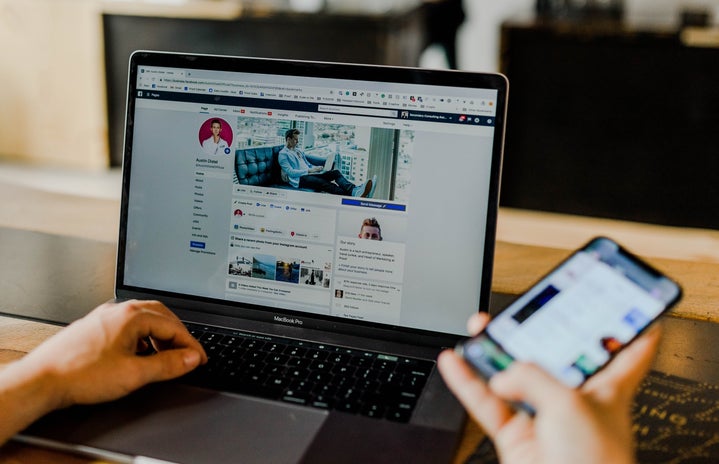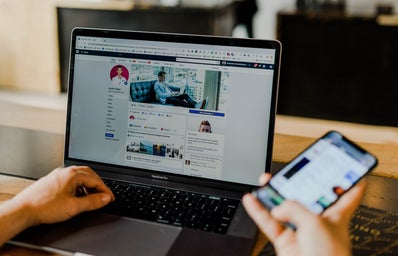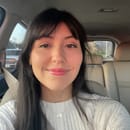This is a bit embarrassing to admit…but from ages 12 to 19, I wanted to be an influencer. Like bad. Ever since I started using Instagram in sixth grade on my iPod Touch, the instant validation appealed to me. My family and I would go on trips together and I would plan my outfits around my posts, have my mom take the pictures, come up with a caption and have my ego boosted. I spent days caring about the photos.
On the other hand, how is being an influencer not appealing? You work for yourself, get to travel the world for free, wear sick clothes, have a platform where your voice is heard and have a certain level of fame—all from your bedroom. If you do it right, you have the opportunity to attend The Met Gala, appear on late-night shows, have your passion projects become real-life businesses and become the face of the brands you love.
What I realized this past year, is that the grass is always greener on the other side. I became more in touch with my inner self and realized that I would hate being an influencer. I didn’t want to acknowledge myself, so I figured other people acknowledging me in a positive light and having the ability to control the way I am perceived through social media would be a better option. However, after acknowledging, accepting and loving myself, I came to the realization that I don’t want anyone commenting on my life, besides the people I love, of course. I can’t control how I am perceived by others, but I can control whose criticism and comments I’m letting into my life. I don’t want people who aren’t my friends and family commenting on how I’m living my life, and I especially don’t want it from strangers on the internet. Criticism and taking comments are a wonderful thing and essential for personal growth. Although, do not take criticism from someone you wouldn’t take advice from.
First I accepted that I have to let go of the need to grow a following on social media, thinking it will give me happiness. Then came the peace; I understood that I will never be able to control how I am perceived on or offline. Then came the realization that social media has nothing to offer me.
Before I start this, I want to acknowledge that social media is amazing. It is a phenomenal tool, resource and opportunity to connect and create real impactful relationships. It has given marginalized communities the opportunity to be heard, grow businesses and have a platform. Social media creates social change in our world that is unprecedented.
All of that being said, deleting social media was the best thing I have ever done for myself. During quarantine I was beginning my journey of self-improvement and self-love. I realized that to be personally happy I had to stop looking down at other people living their lives and start living mine. At first it was hard—extremely hard. I realized I didn’t really have a lot of interests and hobbies outside of my phone. Was I really interested in makeup and the cottagecore aesthetic? Or, was that just what my algorithm was feeding me? Was I really allowing an algorithm to control my interests?
After some time of looking up instead of down, I opened my eyes to what’s right in front of me. Over time, this appreciation for what’s around me gave me an overwhelming sense of gratitude for literally everything. When I say everything, I mean everything. Lightbulbs, trees, the way my mom’s flip flop sounds, sourdough bread, washing machines, my eyes—everything. With that gratitude, I finally found my interests, hobbies and purpose.
At this time, I was allowing myself 20 minutes a day—some days longer, some days shorter—to be one social media. I then watched the Netflix documentary The Social Dilemma. The documentary changed how I viewed cell phones. It gave me a bird’s eye view of society today. We are a more depressed, anxious society and it is because we are all looking down. We feel as if we have a whole entire world in the palm of our hands. It is so exhilarating, it almost feels tangible. Although, look around; we aren’t interacting with one another anymore. We have digital pacifiers that keep us safe and comfortable from awkward social situations, dull moments waiting in line, or when we want to tune people out instead of actually talking to them. Social media is still extremely new, and we are the guinea pig generation for these social networks.
Yeah, it hasn’t been easy. I’ve lost connection with some people, which is devastating. But if the connection was important enough to both of us, why wasn’t the effort there? My little sister will bring up TikTok sounds and I immediately feel 80 years old. I also feel out of the loop sometimes when talking to some friends about their lives.
I also have more free time. I don’t compare myself to strangers on the internet showing me the best versions of themselves. I don’t know what my friend from middle school (who I haven’t talked to in 10 years, but won’t unfollow because it feels weird) posted on their story. I have learned to be alone with myself and to appreciate what’s around me. I have learned that my real imperfect life is so much better than my online perfect life.
All of this being said, I haven’t deleted my accounts because I use social media as a tool. I go on the web version if I’m looking for something specific—I am very intentional on how I use it. I don’t have the apps on my devices and I don’t scroll on my feed.
“If something is a tool, it genuinely is just sitting there, waiting patiently. If something is not a tool it’s demanding things from you. It’s seducing you, it’s manipulating you, it wants things from you. We’ve moved away from a tools based technology environment, to an addiction and manipulation used technology environment. Social media isn’t a tool waiting to be used. It has its own goals, and it has its own means of pursuing them by using your psychology against you.” – Tristan Harris, former design ethicist at Google and co-founder of Centre for Humane Technologies



